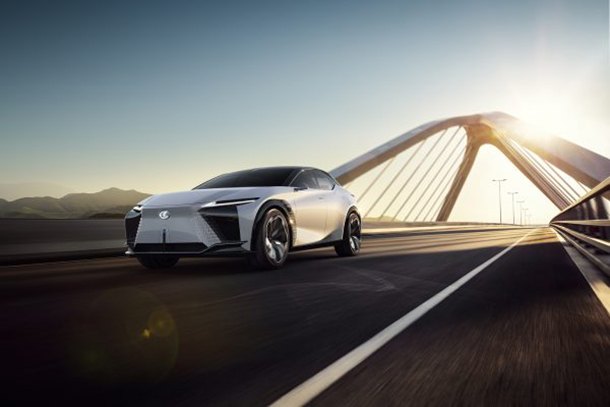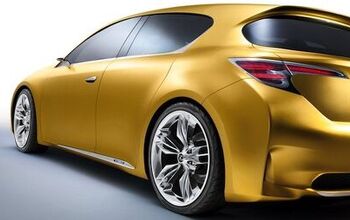Lexus LF-Z is Watts New
Today, Lexus dropped the LF-Z concept car, stepping on the electric-vehicle (EV) accelerator. By 2025, the company expects to have 20 new PHEV, HEV, and BEV models from which to choose.
670,616,629 miles per hour, the speed of light, is how fast energy travels as electromagnetic waves. This is nearly as fast as car companies are becoming EV manufacturers.
Lexus, and just about every other carmaker, is EV giddy. They proclaim this is the transformation of the century, linking sustainable development, changes in lifestyle, values, and mobility needs as to why they’re swinging for the fences. What’s the big rush to get to a Disney-like Autopian society, where we’ll chug along at a preset MPH and have our routes selected for us?
So Lexus putting a battery in the LF-Z is a big deal because they think this is what 2025 will look and drive like. For one, they’re calling Direct4, their four-wheel, driving-force control technology, the optimal placement of batteries and electric motors, one that sets them apart from the rest. EVs, whether battery (BEV), hybrid (HEV), or plug-in hybrid (PHEV), are putting the cart before the horse if there isn’t enough electricity or kW in the grid to recharge their growing numbers.
Will the sales ratio of EVs exceed that of gas-powered vehicles by 2025, as Lexus predicts? By 2050, will they and their vehicle counterparts, achieve carbon neutrality? Is the formed exterior of the LF-Z Electrified ’emotional’ as its designers say, just as the open, minimalist cockpit provides a unique EV driving experience? Exactly what is that experience compared to the one you get when you go off-road in a Ford F-150, or when you drive long stretches of the open road in a Corvette? Maybe as fewer drivers have the adventure that comes along with the responsibility of controlling the rate of acceleration by themselves, this experience will become lost, like that of riding a horse.
[Images: Lexus]
With a father who owned a dealership, I literally grew up in the business. After college, I worked for GM, Nissan and Mazda, writing articles for automotive enthusiast magazines as a side gig. I discovered you could make a living selling ad space at Four Wheeler magazine, before I moved on to selling TV for the National Hot Rod Association. After that, I started Roadhouse, a marketing, advertising and PR firm dedicated to the automotive, outdoor/apparel, and entertainment industries. Through the years, I continued writing, shooting, and editing. It keep things interesting.
More by Jason R. Sakurai
Latest Car Reviews
Read moreLatest Product Reviews
Read moreRecent Comments
- Lou_BC Well, I'd be impressed if this was in a ZR2. LOL
- Lou_BC This is my shocked face 😲 Hope formatting doesn't fook this up LOL
- Lou_BC Junior? Would that be a Beta Romeo?
- Lou_BC Gotta fix that formatting problem. What a pile of bullsh!t. Are longer posts costing TTAC money? FOOK
- Lou_BC 1.Honda: 6,334,825 vehicles potentially affected2.Ford: 6,152,6143.Kia America: 3,110,4474.Chrysler: 2,732,3985.General Motors: 2,021,0336.Nissan North America: 1,804,4437.Mercedes-Benz USA: 478,1738.Volkswagen Group of America: 453,7639.BMW of North America: 340,24910.Daimler Trucks North America: 261,959






































Comments
Join the conversation
They cadged the steering wheel from Tesla. The rest of it looks like a science-fiction movie about the future, which is what automakers seem to think electric cars should look like.
"transformation of the century, linking sustainable development, changes in lifestyle, values, and mobility needs as to why they’re swinging for the fences. What’s the big rush to get to a Disney-like Autopian society, where we’ll chug along at a preset MPH and have our routes selected for us?" EVs are just cars, but with more efficient power and no localized exhaust. They're not robot cars, unless we learn otherwise. And all of that stuff above is really about robot cars. Despite the difficulty I'm excited about robot cars because 42,000 people died on American roads in 2020, the overwhelming majority because of bad human driving.